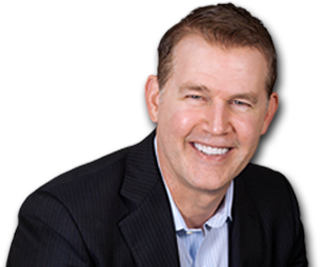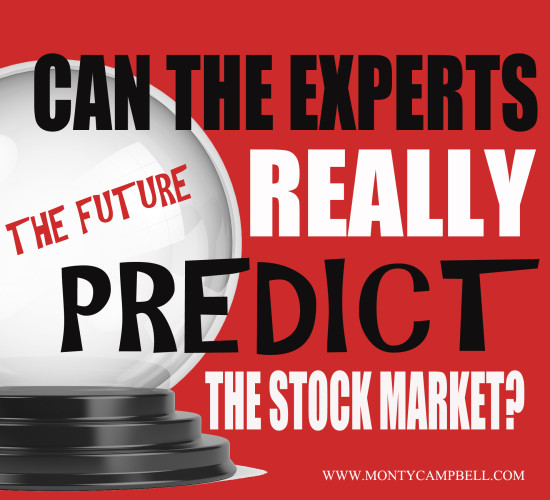Whenever someone finds out that I’m a stock investor, I often get asked a very familiar question. It’s an honest question and it deserves an honest answer.
The question is this – “What will the stock market do next?”
Or, it’s close cousin…
“Can you tell me what stock will double in the next 6 months?”
My reply is always the same – I have no idea. Although that’s not the answer they were hoping for, it’s the correct answer. It’s not only the correct answer by me, it’s the correct answer from anyone who is telling the truth.
Creating stories for random events
Our minds seek patterns. In fact, our minds seek patterns so much that sometimes they will even make patterns where none exist. The reason for this is that we want to find explanations for events, especially if there’s some randomness to the event. We do this so that we can rationalize the unknown. You see, our brains don’t like carrying around too many unknowns!
And while pattern seeking can be useful in many situations, it can be deadly in the stock market. But that doesn’t stop legions of people from looking for, and worse, believing so-called experts that convince them that they can predict the future of the stock market…but only if they’ll buy their program, book or attend their seminar!
What these “experts” are taking advantage of is the natural inclination of people to underestimate how many opportunities there are for unlikely events to happen. But here’s the key – Random, seemingly impossible, events do happen if they have enough opportunities to happen.
For example, what do you think the odds are of two people sharing the same birthday in a group as small as 23 people? Would you be surprised to know that the probability is a little better than 50/50? It’s actually 50.7% likely that two people will share the same birthday in that setting.
Aristotle said, “It is likely that unlikely things should happen.” That means that we shouldn’t be surprised when lightening strikes in the same place 5 times in a row. The chances may be small that an event like that happens, but small doesn’t mean it’s impossible. Over time, and especially if the numbers get large enough, the seemingly improbable will happen.
The key is to be careful about inferring meaning to random events, especially when it comes to the stock market. It’s all too easy to assign importance to something that has happened more than once or to something that seems amazing or out of the ordinary. But know this – it is always possible to find patterns in events if you search hard enough and if you selectively pick things that fit the pattern, while conveniently ignoring anything that doesn’t fit the pattern. But that’s not a predictable pattern my friend. That’s just a story told, one that conveniently fills in the gaps, in an attempt to bring some random pattern to life.
An Oracle is born
On October 31, 2007 Meredith Whitney wrote a particularly pessimistic, but accurate, report on Citigroup. She noted that the bank’s dividends paid out to investors were greater than its profits at the time, and made the case that this would lead to Citigroup’s bankruptcy. Shortly after the report’s publication, Citigroup’s stock dropped and it’s CEO resigned.
In 2007, Forbes magazine listed Whitney as the second-best stock picker in the capital-market industry and in 2008 the New York Post named her one of the fifty most powerful women in New York City.
Whitney’s bearish view on banks landed her on the cover of Fortune magazine where she made the very prescient statement of “It feels like I’m at the epicenter of the biggest financial crisis in history.” Indeed, that is exactly what was about to happen.
She was hailed as an oracle of the financial crises that followed. In October 2008, Whitney was ranked as one of Fortune’s “50 Most Powerful Women in Business.” In 2008, she won CNBC’s “Power Player of the Year” over Jamie Dimon, Ben Bernanke, and Hank Paulson. She soon left the research firm where she was employed and started her own research firm and also a hedge fund.
But bottling lightening twice has proven to be very difficult for Ms. Whitney.
In a December 2010 interview, Whitney stated that between fifty and a hundred counties, cities, and towns in the United States would have “significant” municipal bond defaults, totaling “hundreds of billions” of dollars in losses, and that “it’ll be something to worry about within the next 12 months”. Her comments drew a great deal of attention since the record amount of money lost in one year through municipal bond defaults up that point was only $8.2 billion. As of today her prediction has not materialized. She later described her forecast as a “guesstimate” involving “fifth-derivative dimensions”.
A third prediction that the central U.S. would prosper while the coasts struggle didn’t really happen either. After her research company struggled to keep clients and staff it was subsequently shut down. And earlier this year, Ms. Whitney’s hedge fund Kenbelle Capital, closed for good.
I say these things not to criticize Ms. Whitney. I say them to make the point that investors should not seek, and certainly not react to, stock market predictions.
The cost of attempting to time the market
Predictions about the stock market could be, and routinely are, dead wrong. And there are consequences to being wrong in the stock market. It’s too easy for the beginning investor to believe that they can just dance in and out of the stock market to the drum of the latest expert, conveniently being at the right place at the right time. But the numbers prove that just doesn’t happen:
Over the past 10 years the average return on the stock market was 7.6% per year. If you had invested $20,000 in stocks 10 years ago, left it there and reinvested the dividends, your money would have more than doubled to over $41,000.
Now, what would have happened to that investment if you moved in and out of the market based on the many predictions of imminent doom during that period? If your attempts at market timing had you on the sidelines just during the market’s 10 best days of that period, almost all of your gains would have been completely wiped out. Gone. Nada.
The point of today’s essay: Leave the predictions to the psychics, fortune tellers and the talking heads on financial programs. Yes, they will be right occasionally. But as Cicero once said, “For who can shoot all day without striking the target occasionally.” Or as they say, “If you put 100 monkeys in a room with typewriters for a long enough period, one of them will eventually write Shakespeare’s Hamlet.
Successful stock investing comes from doing your homework, not by chance. Instead of looking for shortcuts, do the necessary work to become a true expert at stock investing. Like anything else, you get out of it what you put into it. Read the books, learn from the true greats like Warren Buffett and others with a long track record, practice what you learn and soon you’ll be on your way to true success in investing.
Be free. Nothing else is worth it.
Want a better way to predict the future? Create the future by educating yourself. Here are more articles from the archives about creating a financially free future:
Want Better Investment Returns? Aim For Average
5 Things You Must Give Up To Become Financially Free





